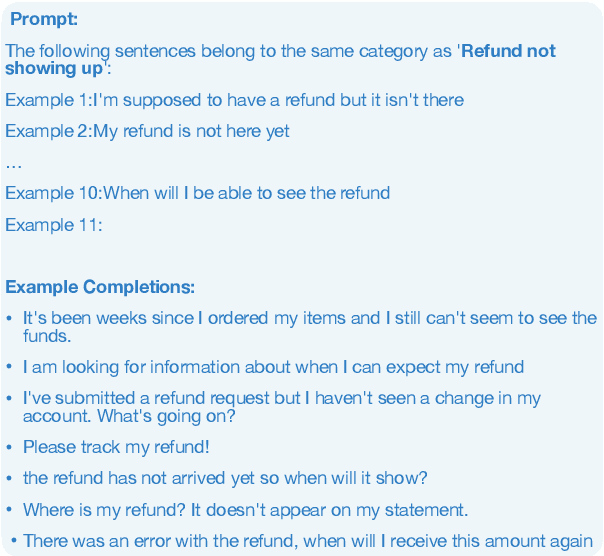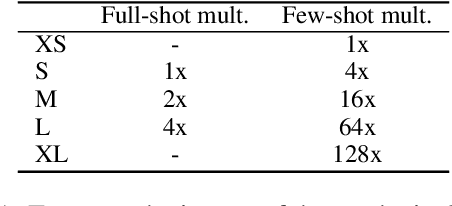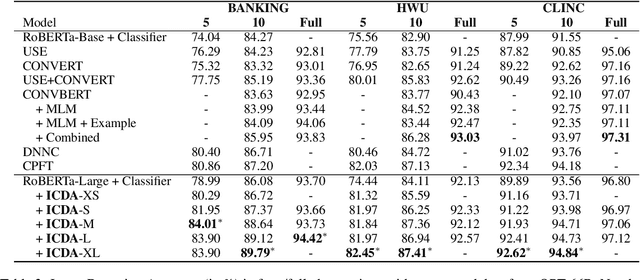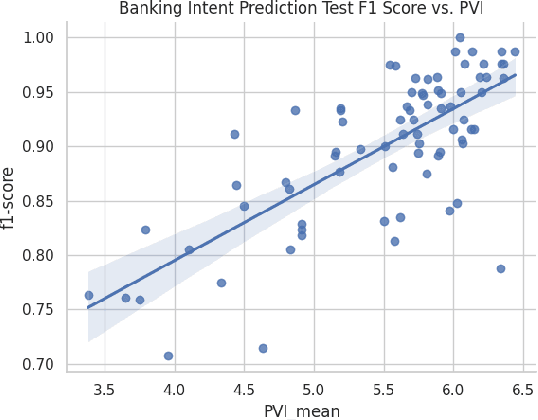Selective In-Context Data Augmentation for Intent Detection using Pointwise V-Information
Paper and Code
Feb 10, 2023



This work focuses on in-context data augmentation for intent detection. Having found that augmentation via in-context prompting of large pre-trained language models (PLMs) alone does not improve performance, we introduce a novel approach based on PLMs and pointwise V-information (PVI), a metric that can measure the usefulness of a datapoint for training a model. Our method first fine-tunes a PLM on a small seed of training data and then synthesizes new datapoints - utterances that correspond to given intents. It then employs intent-aware filtering, based on PVI, to remove datapoints that are not helpful to the downstream intent classifier. Our method is thus able to leverage the expressive power of large language models to produce diverse training data. Empirical results demonstrate that our method can produce synthetic training data that achieve state-of-the-art performance on three challenging intent detection datasets under few-shot settings (1.28% absolute improvement in 5-shot and 1.18% absolute in 10-shot, on average) and perform on par with the state-of-the-art in full-shot settings (within 0.01% absolute, on average).
 Add to Chrome
Add to Chrome Add to Firefox
Add to Firefox Add to Edge
Add to Edge